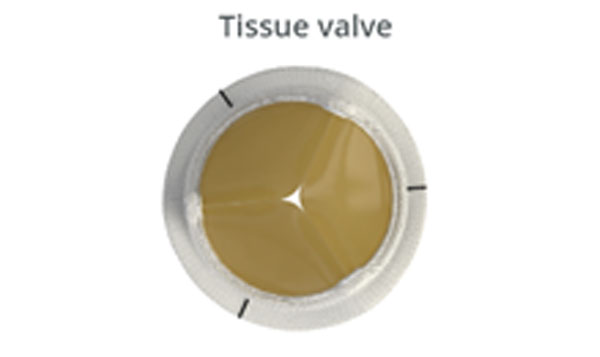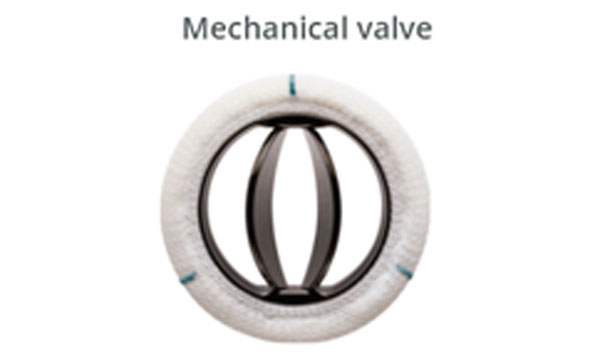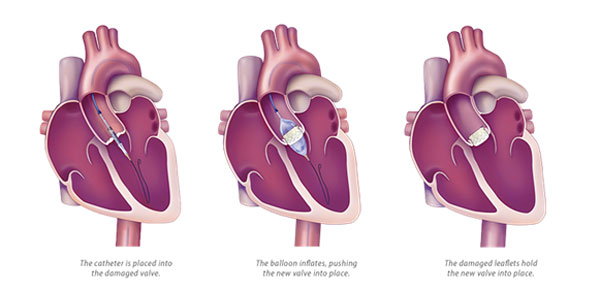Aortic Valve/TAVR
The Aortic valve may need to be replaced for these reasons:
- The valve has become narrowed (aortic stenosis) – the opening of the valve becomes smaller, obstructing the flow of blood out of the heart.
- The valve is leaky (aortic regurgitation) – the valve allows blood to flow back through into the heart.
The difference between tissue and mechanical valves:
Tissue valves, typically do not require the use of blood thinners and typically last between 10 to 20 years depending on the type of valve, patient characteristics and other factors.

Mechanical valves are designed with durable materials that may last longer. However, patients with mechanical valves require a lifelong treatment of anticoagulants (blood thinners) to avoid clots on the valve.

What is TAVR?
Transcatheter aortic valve replacement (TAVR), also called transcatheter aortic valve implantation (TAVI), is a nonsurgical procedure in which a special long, thin tube (catheter) is threaded into a blood vessel through the groin and guided inside the heart. This procedure is much less invasive than open heart surgery and enables the implantation of a new heart valve (sometimes referred to as a transcatheter aortic valve implant) without the need of opening the chest.
TAVR has many significant benefits for patients, including:
- Light sedation and local anesthesia
- Minimal blood loss compared with open aortic valve surgery
- Lower heart and lung complications
- Shorter time in the hospital
- Faster recovery
- Fantastic improvement in patient quality of life

A TAVR procedure takes about 90 minutes to complete, whereas open heart surgery typically takes 4-to-6 hours. With TAVR, patients recover faster than they would after a traditional open-heart valve replacement. The vast majority of patients who undergo TAVR are sedated, but not under general anesthesia.
Recovery
We advise patients not to drive for at least 72 hours after the procedure (to allow the incisions to heal) and to avoid strenuous physical activity for 10 days. TAVR recovery is much faster than recovery from open-heart surgery, and most patients can resume normal activities within two weeks.